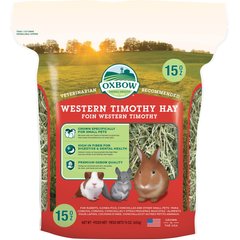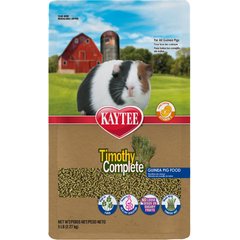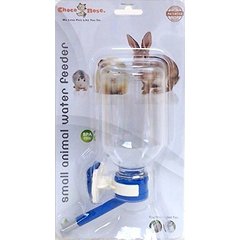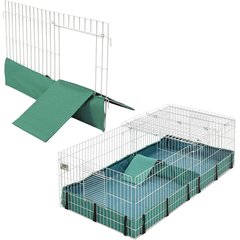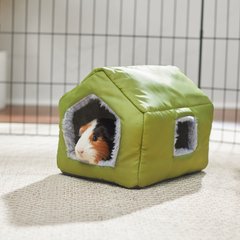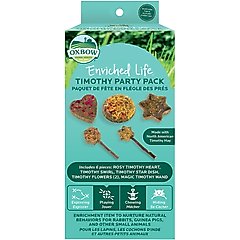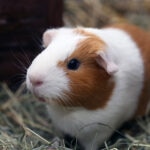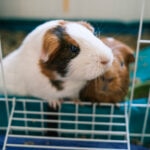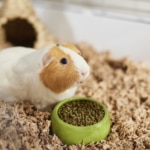How Long Do Guinea Pigs Live?
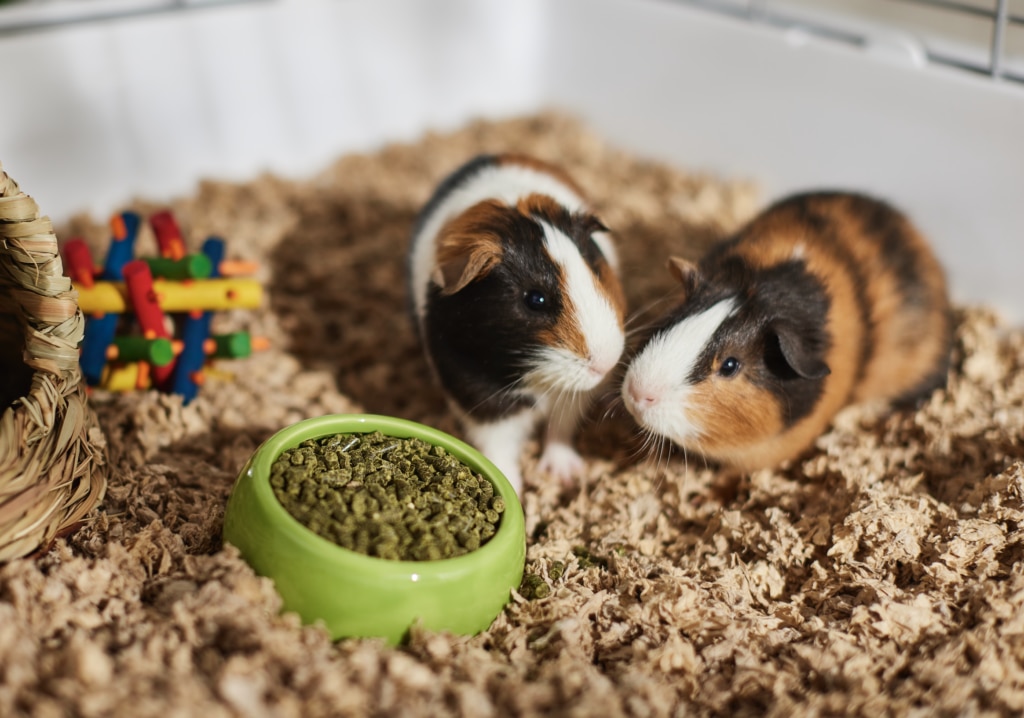
Photo by Chewy
If you’re considering bringing home a guinea pig—or you’ve recently welcomed one into your family—you might be wondering how long these adorable companions will be in your life.
Guinea pigs can be wonderful additions to your household, offering years of joy, affection, and fun.
In this article, you’ll learn how long guinea pigs typically live, the factors that influence their lifespan, and what you can do to ensure your guinea pig lives a full and healthy life.
Key Takeaways
- Guinea pigs live an average of 5–7 years, but some can live longer.
- Genetics, nutrition, housing, and vet care all play a role in lifespan.
- A diet rich in hay, vitamin C, and fresh veggies supports health.
- Social living, a clean habitat, and regular vet checkups help your guinea pig thrive.
- Indoor living is best for guinea pig safety and health.
How Long Do Guinea Pigs Live?
Guinea pigs typically live four to seven years, though some can live up to eight years or more with exceptional care.
Guinea pigs’ lifespans are considerably longer than that of hamsters or mice, making them a more long-term commitment. If you’re a new pet parent, it’s important to plan for this level of responsibility.
Providing a balanced diet, routine vet care, and an enriching environment can go a long way in helping guinea pigs live longer.
While genetics may also play a role, environmental factors are much more influential in their overall health and longevity.
Factors That Affect Guinea Pig Lifespan
Genetics and Breed Differences
While all guinea pigs are part of the same species (Cavia porcellus), there are several breeds with slight genetic differences.
For example, Abyssinian and Peruvian guinea pigs might have slightly different grooming and care needs because of their coats. Both the skinny pig and the Baldwin guinea pig developed a spontaneous genetic mutation that caused hairlessness in the breeds.
Hairless guinea pigs tend to live longer (seven to eight years) in comparison to long-haired guinea pigs, who can live for about four years on average. However, breed itself doesn’t significantly change lifespan.
Diet and Nutrition
Guinea pigs need a diet rich in fiber and vitamin C.
Guinea pigs can’t make their own vitamin C, so they must get it through food and, typically, a vitamin C supplement (such as the Oxbow Natural Science Vitamin C Small Animal Supplement).
Recommended Product
A diet lacking this essential vitamin can lead to scurvy, a painful condition that can shorten their lifespan. Just like in people, guinea pigs need vitamin C to make their own collagen. Without it they can have poor wound healing, rough hair coat, lethargy, arthritis, painful teeth, and even respiratory issues.
Even though vitamin C is added to pellets it often degrades over time, so it’s important to supplement vitamin C on its own as a well.
Key dietary needs of guinea pigs include:
- Timothy hay. Hay should make up the largest part of your guinea pig’s diet. It must always be available, as hay helps dental and digestive health. Guinea pig teeth never stop growing. The coarse, fibrous hay helps wear them down. Their gut also depends on the fiber from the hay to maintain normal motility and healthy bacteria in their large cecums. Since guinea pigs will graze up to 20 hours per day in the wild, topping the hay rack consistently throughout the day is very important.
- High-quality pellets. Pellets should be fed in limited quantities. It’s important to choose vitamin C–rich guinea pig pellets. Make sure the pellets are just pellets and free of seeds, enticing or unhealthy ingredients, or added filler items.
- Fresh vegetables and fruits. You should provide daily servings of leafy greens and occasional fruits to your pig as part of good nutrition. Some great vegetable options include romaine lettuce, spinach, kale, red leaf lettuce, and arugula. Some occasional fruit options include banana, blueberries, kiwi, and apples without seeds or stems.
Recommended Products
Avoid feeding iceberg lettuce (which is low in nutrients), toxic food items like chocolate and onions, or processed foods such as chips, pasta, and bread.
Always provide fresh, clean water. Make sure to rinse out your guinea pig’s water bottle daily, and deep clean it weekly for good health and hygiene.
Recommended Products
Housing and Environment
Guinea pigs need more space than many first-time pet parents expect. A small, cramped cage can cause stress on their feet, lead to obesity, and other health issues.
Aim for a cage that is at least 2 feet by 3 feet. Your pig should have enough room to be able to run around and have zoomies if they wish.
Recommended Product
Their habitat should include:
- Soft, absorbent bedding (avoid cedar or pine shavings as these can be damaging to guinea pigs’ delicate respiratory tracts)
- Daily cleaning of soiled areas and weekly full cage cleaning
- Hiding spots for security and rest
- Toys and chews for mental stimulation
- A guinea pig-safe food bowl and water bottle (you may choose to add more than one, in case a nozzle becomes clogged)
Recommended Products
Veterinary Care
It’s important for guinea pigs to be seen by their veterinarian yearly for a physical. Not all veterinarians treat guinea pigs—they should be seen by an exotics vet.
Common health problems that can affect guinea pig lifespan include:
- Dental disease. Guinea pig teeth grow continuously and must be kept worn down through chewing. If they can’t wear down their teeth, dental issues may occur.
- Respiratory infections. These issues are often caused by bacterial infections, poor ventilation, or dirty bedding.
- Parasites. These include mites or lice, which can cause skin problems and discomfort. Guinea pigs can acquire these from another infested guinea pig or previously contaminated bedding from another guinea pig that had mites or lice.
Annual vet visits and prompt attention to signs of illness can help prevent serious complications.
How To Help Your Guinea Pig Live a Longer Life
You can improve your guinea pig’s quality of life—and potentially extend it—by following these tips:
- Provide a nutritious diet. Feed your pet mostly hays with some pellets, and a variety of veggies (like bell peppers and kale) along with a vitamin C supplement.
- Make sure your pig has a clean environment. Change bedding often and spot clean daily to keep their living space dry and odor free.
- Provide your pig ample social interactions. Guinea pigs are very social and loving herd animals. Consider keeping them in same-sex pairs for companionship.
- It’s also important to spend time with them daily to strengthen your bond. You can do that through petting and grooming them, offering treats, supervised exploration time, and just spending time with them on the floor or in your lap.
- Offer exercise and enrichment. Allow floor time in a guinea pig–safe area and offer your pet tunnels, balls, and toys.
- Bring them for vet visits. Early detection of illness is key. Learn to spot changes in your pig’s behavior, appetite, and/or energy.
How Long Do Guinea Pigs Live as Pets in Different Situations?
You might wonder, “How long do guinea pigs live for?” or “How long do guinea pigs live as pets?”
The answer can vary based on several lifestyle and care factors, such as:
- Paired vs. solo living. Guinea pigs often live longer when housed with a compatible buddy. Loneliness can lead to stress and depression.
- Indoor vs. outdoor environments. Always house your guinea pigs inside in a safe, comfortable environment. Outdoor living environments expose them to predators, extreme temperatures, and parasites.
- Stress levels. A calm household—with gentle handling and minimal loud noise—help guinea pigs feel safe and secure.
Creating a routine for feeding, cleaning, and bonding time supports your guinea pig’s emotional and physical well-being.
When It’s Time To Say Goodbye
Recognizing the signs of aging or illness can help you make compassionate choices as your guinea pig nears the end of their life.
Signs that your pet may be nearing their final days include:
- Lethargy or lack of interest in surroundings
- Labored breathing
- Weight loss despite eating
- Poor coat condition or posture
Always consult a veterinarian before making decisions about euthanasia. Some pet parents opt for hospice-style care with medications to keep their guinea pig comfortable at home.
Whatever you choose, being there with love and care is a gift to your pet.
A guinea pig’s lifespan is influenced by many factors, including nutrition, housing, exercise, and preventive veterinary care. With attentive husbandry, low-stress environment, and routine veterinary examinations, guinea pigs can live very happy and healthy lives as your companion.
Attributions
This article was created with assistance from AI tools. The content has been reviewed for accuracy and edited by a human.

